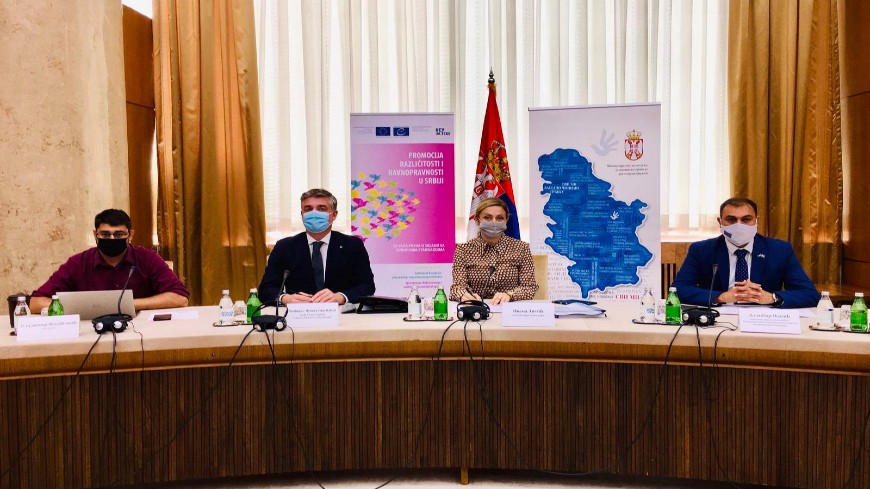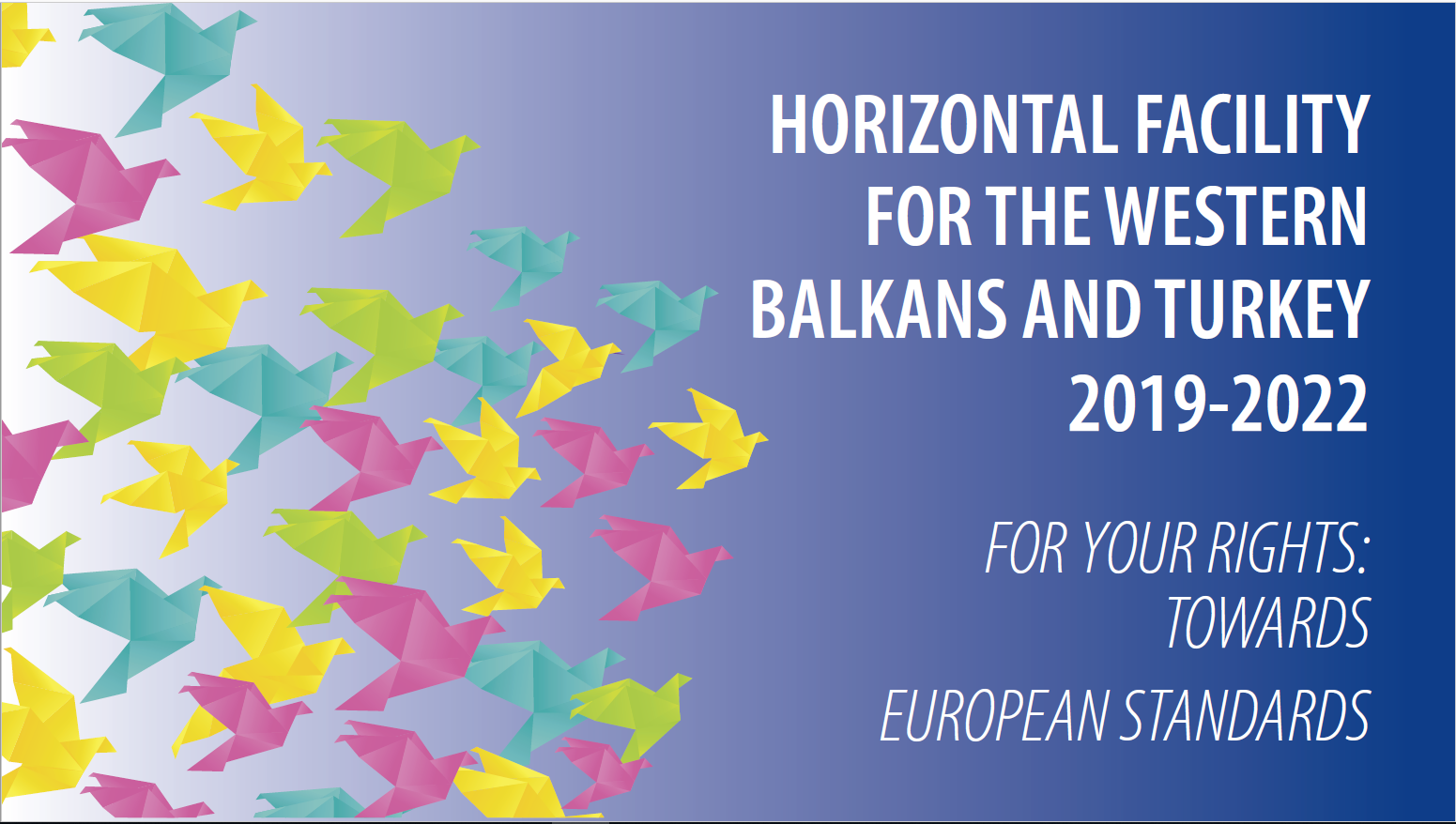In co-operation of the Ministry of Human and Minority Rights and Social Dialogue of Serbia and the Council of Europe Office in Belgrade, the Ex-post analysis of the effects of the implementation of the Action Plan for the realisation of the rights of national minorities was presented in Belgrade on 8 September.
The analysis was developed within the joint action of the European Union and the Council of Europe "Promotion of diversity and equality in Serbia", and the presentation of the Analysis was attended by representatives of relevant state bodies, international organisations, independent bodies the Council of Europe and representatives of national councils of national minorities.
In her introductory address, Ivana Antić, Assistant Minister, greeted those present and said that this analysis would be the starting point for drafting a new appropriate strategic document, based on the Progress report on the EU accession process, as well as the recommendations of the Fourth Opinion of the Advisory Committee from 2019 regarding Serbia’s implementation of the Framework Convention for the Protection of National Minorities. She pointed out that the drafting of the new strategic document will be co-ordinated by the Ministry of Human and Minority Rights and Social Dialogue, which will undertake activities in the coming period in order to form a working group.
“The ex-post analysis of the action plan highlights spaces for future work. There is a need to make actions more specific and measurable. Knowledge and data about the situation of persons belonging to national minorities has to be increased. This requires an inclusive and participatory preparation of the population census in October 2022, including enshrining the right of persons belonging to minorities to multiple national affiliation. Furthermore, policies need to become more inclusive and holistic, across sectors as well as age, gender and geographical groups. Democracy needs national minorities and an environment without hate speech. As a founding member of the Council of Europe Observatory for History Teaching in Europe, the Serbian government has a particular responsibility for ensuring multicultural, intercultural and multiple perspectives in education and culture”, said Tobias Flessenkemper, Head of the Council of Europe Office in Belgrade, recalling the Committee of Ministers resolution of April 2021.
Deputy Chairman of the Co-ordination of National Councils of National Minorities Dalibor Nakic, pointed out that the Action Plan for for the realisation of the rights of national minorities is extremely important for members of national minorities living in the Republic of Serbia and that national councils will, as before, be actively involved in its improvement, as well as in the implementation of activities and monitoring the implementation of the Action Plan.
The presentation of the Analysis, as well as development of this document were organised within the joint European Union/Council of Europe action "Promotion of diversity and equality in Serbia", which is a part of the joint programme "Horizontal Facility for the Western Balkans and Turkey 2019-2022".




